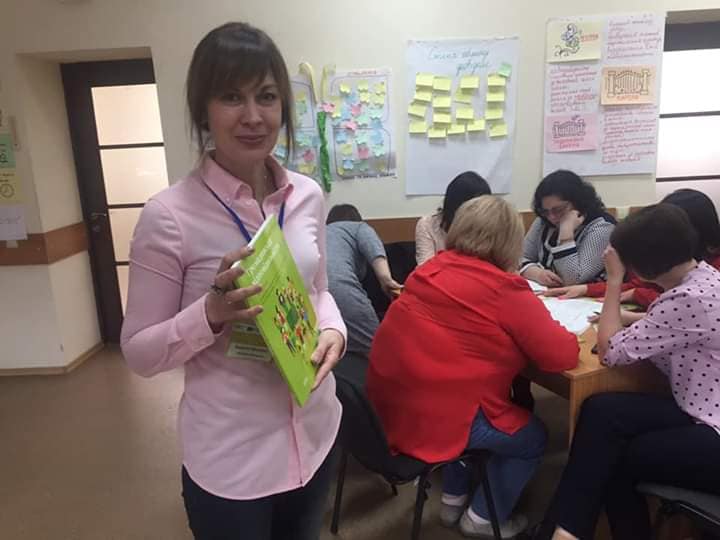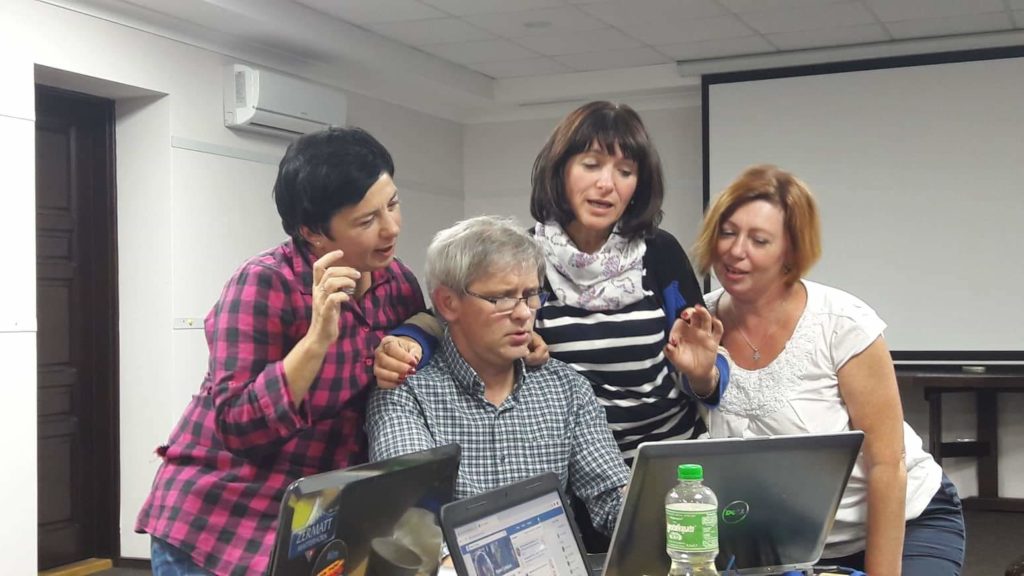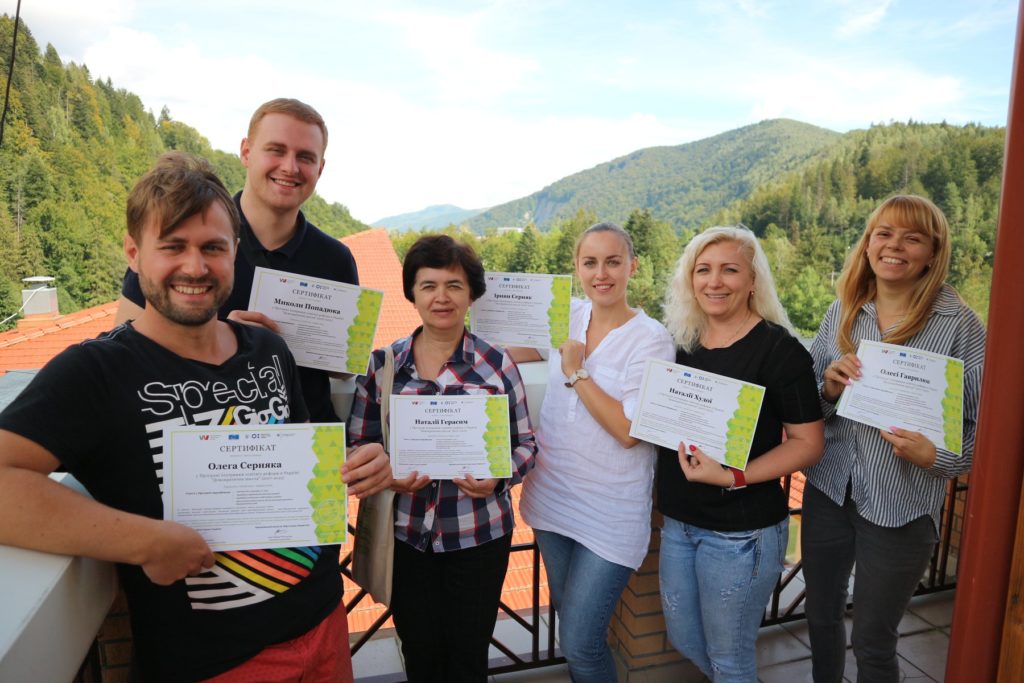How come teachers and school heads take time from the busy schedule to be trainers for their colleagues? We asked some of our trainers in the EWC Schools for Democracy project to find out.

“When I learned about an open call for trainers within the Schools for Democracy, I was so excited. It was an opportunity to go beyond administrative work, reload my batteries, interact with colleagues from other schools and a chance to see how they work”, Nadiya Kravchenko recalls.
“A trainer is there to hear the voices of students, teachers and parents. As a school head I don’t have a capacity to see the whole picture. Being a trainer really showed me how a school can work”, says Nadiya.

“A good school leader needs to organize a safe environment for the professional growth of teachers and make room for improved relations with the parents and local authorities. I was able to do this only because of my newly obtained trainer skills”, says Yaryna.
Yaryna Sukhetska says being a trainer made her realize that adult education is different from children’s.
Being a trainer also helped her to develop some soft and hard skills: give clear and concrete tasks, formulate open-ended questions, lead a discussion without adding her own judgment. It also resulted in better time management, grew the habit to reflect on what worked well and what did not work and why; knowledge on how to establish an atmosphere of cooperation with all school stakeholders, understanding of the importance of joint participation in discussions and in adoption of key school documents.
The network of trainers consists of representatives from various fields – schools, universities, teacher trainings institutes, educational NGOs and others- This gives an opportunity to learn from each other, share experiences, new ideas, lifehacks and tricks.

«Our pool of trainers is very friendly. We support each other and even can call ourselves a family. Thanks to this support, I coped with my fear of public speaking, increased my self-esteem and self-confidence. Despite difference in age and profile, we have a common goal — implement democratic changes in the schools of Ukraine», notes Olesya Havryliuk.
Natalia Gerasym considers that being a trainer provides her with an opportunity to create conditions for learning.
«I saw opportunities to strengthen formal education through the non-formal sector. This encouraged me to participate in educational projects and then prompted the desire to share my knowledge and skills with colleagues. I concluded that working with teachers as a trainer I have a chance to create conditions for learning. Together with my colleagues we find ways to solve problems that teachers face every day», concludes Natalia.